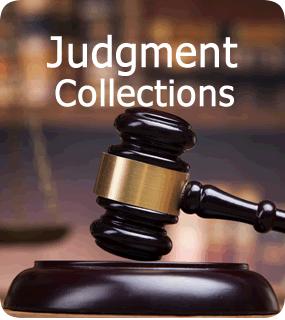
Receivable Tips for Law Firms
Our accounts receivable tips are based on decades of collecting receivables for Law Firms. You should find a few pointers that will speed up your Law Firms collection and receivable turnover. Collecting Law Firm accounts receivables will get a lot easier if you incorporate these tips into your firm???s accounts receivable collection process. However, before getting into our pointers it pays to understand how the gratuity scale affects your receivables.
As the gratuity scale kicks in, many Clients become less inclined every month to pay your receivables. In turn, your money is tied up and not accessible. Most banks value a line of credit for a Law Firm's accounts receivable based on files that are under 60 days old. Implementing the bullet points below should help turn your receivables into fast bankable cash.
Most firms send a series of progressive letters, or emails, each one becoming stronger in tone. You are better off sending just one letter, email, and then following up with a phone call. Some staff are reluctant to phone because asking for money, or asking for your bill to be paid, is sometimes difficult (don't want to embarrass or hurt anyone's feelings). Always keep foremost in mind that they owe the receivable and that they are accountable to you for the payment of the receivable.
Before making the call, take the following into consideration: SILENCE IS GOLDEN!!!
- Make the call, identify yourself and the reason you are calling.
- Then go Silent for at least 5 seconds. This may be difficult but the silence puts the pressure on the delinquent client to explain why your receivable for services rendered has not been paid. Silence will be your key to success, as silence is the strongest pressure possible.
- Always ask for 100% full payment of the account.
- Overcome objections (see point below).
- Summarize any payment arrangements you have made and send an email confirming the agreed dates and amounts being paid on their receivable.
- Keep notes as to what was said, the date and time of the call.
Overcome Objections
Sometimes it pays to remind the Client that you were there when they needed you. It is only fair they reciprocate in kind and pay their receivable.
Make Sure You Are On Solid Ground
In order to collect interest on your accounts, you must have a solid Retainer Agreement specifying the receivable interest rate and your client's agreement to same.
The same goes for Personal Guarantees. In order to enforce the Guarantee, the Retainer Agreement must separately specify the details of that Personal Guarantee.
You can also advise your delinquent client that once the receivable is placed in the hands of your Collection Agency, their credit could be affected.
What Happens When They Still Don't Pay?
There comes a time when it is wise to cut your losses and list the receivable with collection professionals. The first benefit when you list an account with IRS is you will have more free time to generate new billable hours. With IRS, you no longer have to waste mental energies on trying to collect a frustrating receivable.
All we need to get started is a copy of your statement along with your client's name, address, telephone number, balance outstanding and any other pertinent information. Our Law Firm collection services are on a contingency basis - NO COLLECTION - NO CHARGE. This enables your firm to get back to work and do what they do best. In-House Receivable Services Ltd. (IRS) is a fully licensed and bonded Bailiff and Collection Agency licensed through Consumer Protection BC.
Legally, we are bound to send a formal demand letter and allow 5 days prior to calling the delinquent client. After the regulated 5 day grace period, our seasoned Collection Staff will contact the Client and make formal demand for payment. Our veteran collectors are immune to frivolous stall tactics and we know how to diplomatically extract payment for your Firm's receivables.



